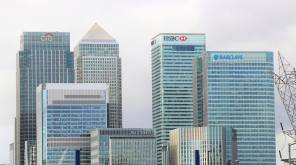

Intense competition from first time buyers (FTB) has brought down the rate of the average two-year mortgage, according to Moneyfacts.
The firm's latest analysis showed the average two-year fixed rate is now 2.49 per cent, down 0.04 percentage points from the 2.53 per cent in August 2018.
This is despite the Bank of England base rate rise of 0.25 percentage points to 0.75 per cent in August last year.
But while the average two-year fixed rate at the maximum 95 per cent loan-to-value (LTV) tier has fallen by 0.54 percentage points, the rate at the 70 per cent LTV tier has increased by 0.14 percentage points.
This indicates that providers may be focusing their attention at the higher LTV tiers, Moneyfacts stated.
Darren Cook, finance expert at Moneyfacts, said: "Following the Bank of England base rate increase last summer, we would typically expect to see mortgage rates rise, and this is true for borrowers looking to secure a mortgage with a 30 per cent deposit, as the max 70 per cent LTV average two-year fixed rate has increased from 2.35 per cent to 2.49 per cent over the past six months.
"Those with a slightly smaller deposit of 25 per cent or 20 per cent have also seen rates rise by 0.05 per cent over the same period.
"However, those borrowers who can only manage to raise a 5 per cent deposit have seen the max 95 per cent LTV average fall from 3.95 per cent to 3.41 per cent, which is fantastic news for prospective FTBs looking to get their foot on the property ladder.
"There clearly seems to be a concerted drive by mortgage providers to try and secure the business of potential FTBs, who are the lifeblood of the mortgage and property markets and it is encouraging to see rates decrease as a result of some healthy competition."
He added: "Despite this increase in competition at higher risk LTV tiers, after the financial crisis the Financial Conduct Authority introduced clear affordability measures that mortgage providers must follow, so potential FTBs will still need to jump through several affordability hoops before they will find themselves on the first rung of the property ladder."
Martin Stewart, founder and adviser at London Money, said: "People need to realise there is a disconnect between the bank base rate and the mortgage rates.
"The latter is dictated by a number of external factors of which the Bank of England is just one so while we have seen base rates rise a couple of times this doesn’t mean that the cost of borrowing follows in a linear fashion."
he said lenders could buy business in by having market leading rates and push business away by making their rates uncompetitive.
He added: "FTBs will always be of interest to the banks now that they have come back to the market in significant numbers, it offers them growth in what is obviously a subdued market.
"The modern FTB is generally well capitalised with funds from parents and with house prices falling as a result of Brexit it is now a wonderful buying opportunity for a much maligned yet essential demographic of the home buying process."
aamina.zafar@ft.com



